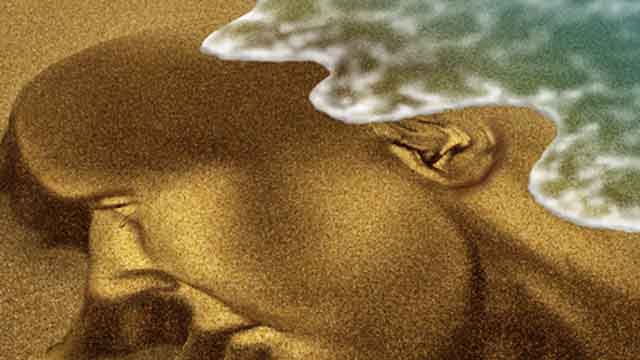SUMMARY
This is AI generated summarization, which may have errors. For context, always refer to the full article.

Biographies belong to an established genre in writing — whether written by the subject herself (autobiography) or by someone else (autobiography).
The touchstone of biography is memory. But if biography depends on memory – is memory merely a static imprint of an experience that we can just reliably and faithfully recall? If it is any less than that, to what extent should we accept all the memoirs contained in a recorded life?
Studies on the brain have showed us that a memory is not a thing – not an artefact that is once and for always, preserved in its original state. It seems more of a Da Vinci masterpiece — always in progress, always being modified, never finished. That is why we should balk if anyone insists on the untouchable wholesale veracity of one’s biographical claims.
It is quite impossible to have a total faithful recall of any one thing that happened in a specific place and time, much more of an entire life’s worth. At best, a biography is a sincere interpretation of your life, or your life as you or someone else would WANT to recall it and share it. I think it is better off being called a “bioversionary “ or if you wrote it yourself, an autobioversionary.
Hippocampus
We understand still very little about how the brain works, whether it is ours or other creatures’. But we know some very important things so far. One of them is that when it comes to memory-making and storage, a brain region called the hippocampus plays a major role. Scientists who have studied brains of mammals found that the hippocampus is a brain region that has been “evolutionarily conserved across mammals.”
In lay terms, this means that mammalian brain regions basically perform similar functions whether you are mice or men. Because of this, many studies on memory have focused on what goes on in the hippocampus. This very recent one done by MIT researchers led by Susumu Tonegawa on mice shows us that a memory in the hippocampus can be artificially modified and the mice will not know the difference.
This is how they did it. They made a number of mice enter a room we can call the “neutral room.” They did this while watching which specific neurons are activated when the mice formed their memory of having entered that room.
These neurons formed what the scientists call a “memory engram” where specific neurons undergo physical and chemical changes upon memory-making. Using a technique that we can subsume under “optogenetics,” they marked that engram so that they know which they are, and also to be able to activate them later by shining blue light on them.
Next, they made the same mice enter a very different room we can call “shock room” but this time, shocking the mice’s feet and also shining blue light on the engram formed when they entered the neutral room, thereby activating that engram.
Then, we see the revelation. When they made the mice go into a third room we can call the “panic room,” and the blue light was pulsed to that particular engram again, the mouse froze. This showed that the mice’s memory of the neutral room has been altered by the electrical shock done in the shock room and has now come to adulterate the memory of the experience in the panic room.
And the mice treated this sequence of events as one whole memory. The episodes manifested themselves together as an uncut memory even if in time and space, they are really linked segments modified by experiences, real (shock) and artificial (activated by the blue light).

False memory
Many headlines around the world pertaining to this experiment included “false memory” in their titles. I listened to the podcast where one of the study authors was interviewed and he himself does not really call it “false memory.”
As far as the mice were concerned, it was a real one. But I guess in transposing this finding to their mammalian cousins—humans—who have been known to deliberately ignore or select memories according to their purpose, “false memories” would be a suitable phrase. We all know many biographies and autobiographies that are filled with those.
Research have also been cited where in the US, 70% of defendants who have been found guilty and have served many years in prison mainly due to witness testimonies were eventually released after DNA tests overturned those witness accounts. That is one of the tragic consequences of any pure dependence on a human recollection of the past.
This is also why cross-checking with physical realities such as natural events from DNA, decomposition to earthquakes and typhoons with their own time stamps should matter. This is also probably one of the reasons why the CSI series have flourished.
This research exposes the fragility and malleability of individual neurons that link to form a memory. The associations that memories form across time and space become entwined in the originals and this is how stories—not mere logs of places, time stamps and describable gestures—are made.
That is why stories do not consist of mere number of years or places one has lived out. They are measured by the weight of your own wishes or desires of how you yourself or someone else, wants to remember you or be remembered by others.
Memories, as science has revealed so far, are never final. As long as you are alive, you unknowingly change or volunteer to modify them. They are not simply what you experienced in the past but modified realities of the original imprints. Like an ancestral house that has been aged by layers of cobwebs and stories, we are defined by our own revisions of our memories. – Rappler.com
Maria Isabel Garcia is a science writer. She has written two books, “Science Solitaire” and “Twenty One Grams of Spirit and Seven Ounces of Desire.” Her column appears every Friday and you can reach her at sciencesolitaire@gmail.com.
Man in the sand image from Shutterstock
Add a comment
How does this make you feel?
There are no comments yet. Add your comment to start the conversation.